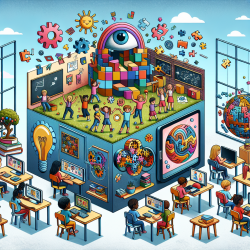As a Special Education Director, you know the importance of effective communication in therapy. A recent study titled “Good job!”: Therapists' encouragement, affirmation, and personal address in internet-based cognitive behavior therapy for adolescents with depression” sheds light on how therapists can optimize their interactions with adolescents undergoing internet-based cognitive behavioral therapy (ICBT) for depression.
This study, conducted by Berg et al. (2022), analyzed messages from therapists to adolescents in ICBT to understand how encouragement, affirmation, and personal address can enhance therapeutic outcomes. Here are some key takeaways that can help practitioners improve their skills:
Encouragement: Building Resilience and Motivation
The study identified that consistent encouragement is vital in helping adolescents stay motivated throughout their treatment. Therapists who regularly use phrases like "Good job!" or "You're doing great!" reinforce the adolescent's efforts, making them feel acknowledged and supported. This is especially important in an online setting where face-to-face interaction is absent.
Practitioners should aim to:
- Regularly acknowledge the adolescent's efforts, no matter how small.
- Encourage persistence by emphasizing that every small step counts.
- Use positive reinforcement to build resilience and self-efficacy.
Affirmation: Validating Experiences and Emotions
Affirmation plays a crucial role in validating the adolescent's feelings and experiences. The study highlighted themes such as "Hard Times" and "You Are Like Others," which therapists used to normalize the adolescent's struggles and reassure them that their feelings are valid and common among their peers.
Practitioners can improve their affirmation skills by:
- Validating the adolescent's emotions and experiences, making them feel understood.
- Normalizing their feelings to reduce the sense of isolation and stigma.
- Offering a compassionate and empathetic response to their struggles.
Personal Address: Creating a Connection
The study also found that personal address, where therapists share their own feelings or experiences, can create a stronger connection and make the therapy feel more personal and less robotic. This approach helps in building trust and a therapeutic alliance.
Practitioners should consider:
- Sharing appropriate personal experiences to build rapport.
- Expressing genuine emotions in response to the adolescent's progress or struggles.
- Using a conversational tone to make the interaction feel more human.
Implementing These Strategies
To implement these strategies effectively, practitioners can start by integrating these communication techniques into their regular interactions with adolescents. Attending webinars, reading publications, and participating in conferences focused on ICBT can also provide additional insights and practical tips.
By focusing on encouragement, affirmation, and personal address, therapists can significantly improve the therapeutic experience and outcomes for adolescents with depression.
To read the original research paper, please follow this link: “Good job!”: Therapists' encouragement, affirmation, and personal address in internet-based cognitive behavior therapy for adolescents with depression.










